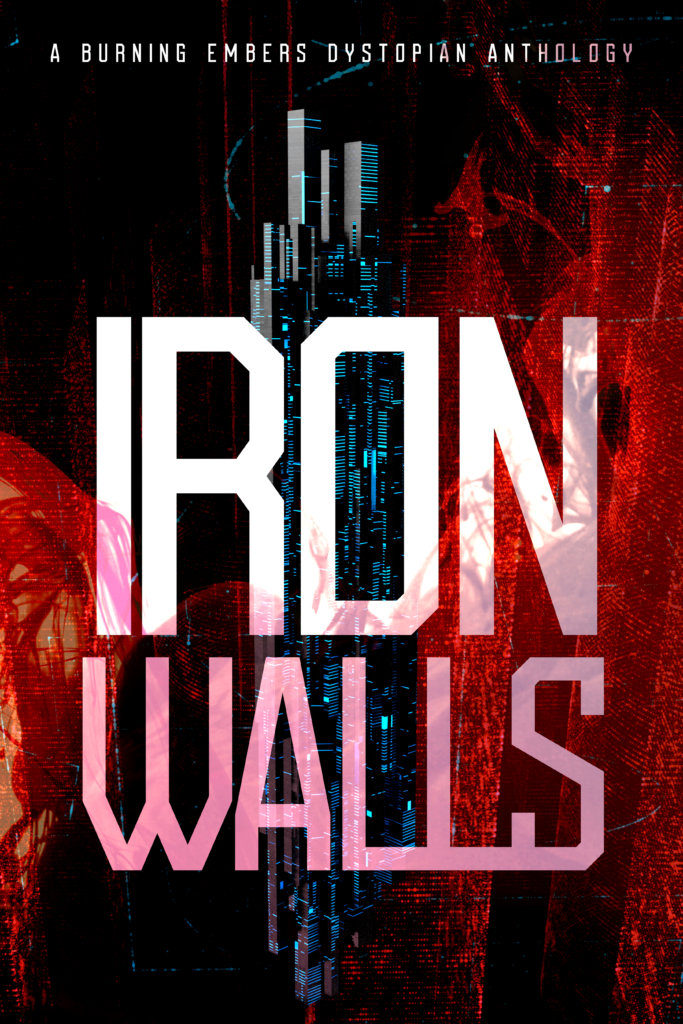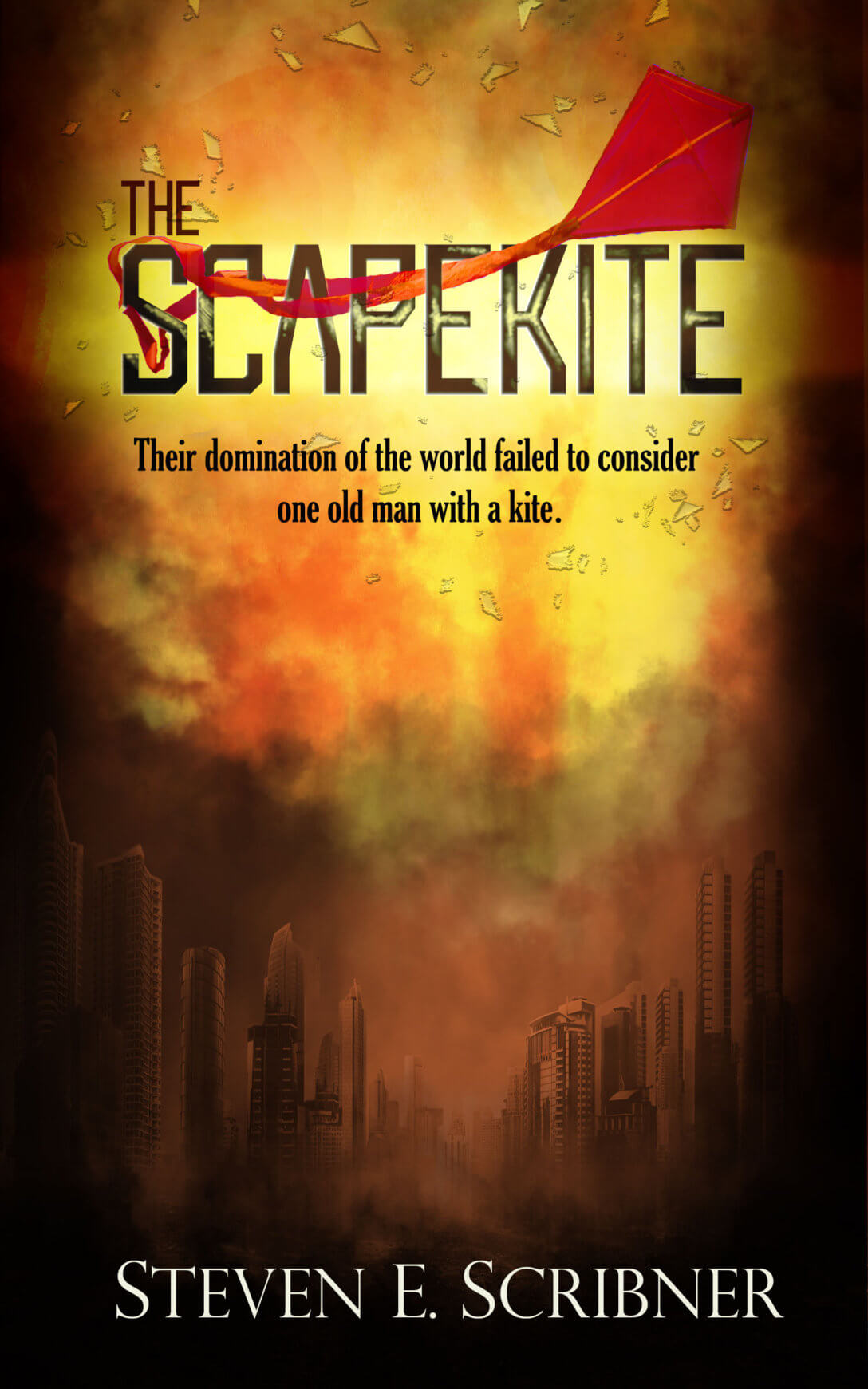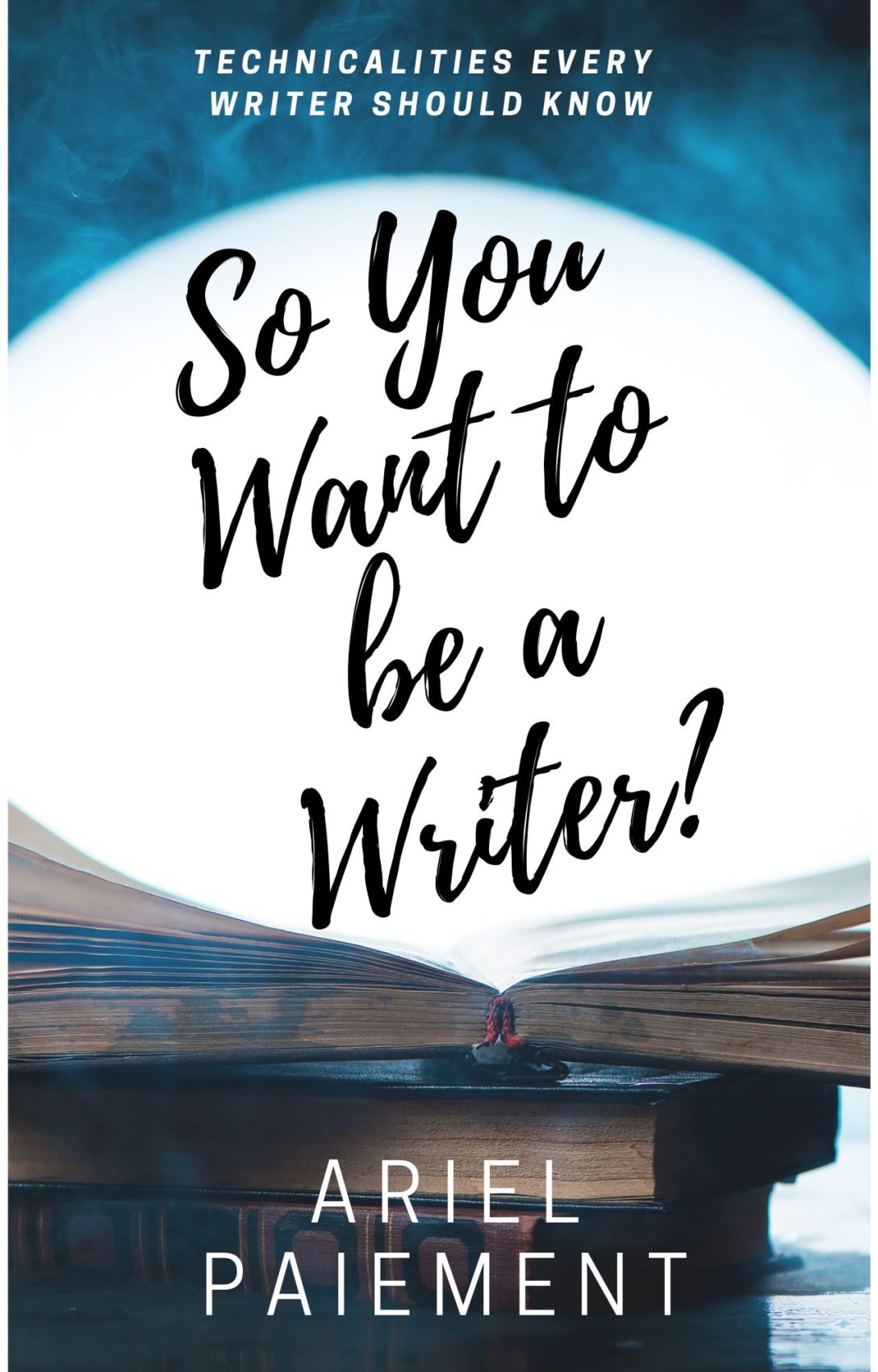We’re back with another interview this week! Two in a row because I was sick last week and ended up off schedule, but next week we should be back on track for any remaining interviews with authors in Iron Walls that haven’t been spotlighted before. I’m hoping for one or two more before the release on October 26th! For today, we have Steven E. Scribner with us. He’s the author of “The Scapekite” in Iron Walls: A Burning Embers Dystopian Anthology. Steven, it’s a delight to have you on. Thank you for doing this! Let’s dive right into the questions.
First, could you tell us a little bit about yourself for readers who aren’t familiar with you?
I’m a high school teacher, amateur musician, part-time blogger and full-time nerd, living in the tree-y suburbs north of Seattle with my wife, Arleen.
That’s great! Sounds like you keep really busy with all of that. High school is a tough one for teaching too, so bravo for taking that on! So, tell us, what kind of dystopian did you write for this anthology, and why did you choose that style or flavor of writing?
My story is about a corporate dystopia; end-stage capitalism gone mad. This is a form of totalitarianism not as frequently seen in literature as world-wide political dystopias are.
Certainly an interesting take! My readers have probably gathered, if they’re reading both my blogs, that I’m extremely pro-capitalist, but I think we can all agree there comes a point where morals fail to properly restrain people and it can go too far. It’s important to remind people that no system is ever perfect or can fully restrain people’s behavior if they want to act badly. It’s definitely not the usual in dystopian tales though, so it’s great to see that so many of the authors in this group took on unique themes! Moving on from the type of dystopia for the anthology, let’s talk about genres in general. What genres do you read, and do you write the same ones?
I don’t have any particular genre that I choose to read; I like sci-fi, fantasy, “magical realist” fiction, realistic fiction, historical fiction, experimental fiction, and nonfiction about science, history, music and art. I mostly write fantasy and sci-fi because I find it fun to make up the worlds I write about.
Wow, that’s quite a range! I myself enjoy many of those genres, so it’s always nice to find fellow fantasy authors who enjoy reading a broad range of material. I think reading a broad array of writing actually enriches our writing regardless of what genre we choose, but I definitely find it helps when creating worlds for fantasy and sci-fi. Sounds like you’ve got a lot to pull from with what you enjoy reading. Now, besides writing, which some of us may find therapeutic and the rest of us wish we did… What are some of the things you like to do to relax?
Besides writing (really, I write for relaxation), I enjoy cooking, watching movies (sci-fi, drama, foreign films, animation, documentaries) and listening to music (classical, jazz, experimental, and musics from Asia, the Middle East, and Africa). I also like to go for long walks.
Ah, so someone who does find writing relaxing! That’s great. Music is at the top of my list for things to relax too! So going back to the writing stuff, can you tell us about your current work-in-progress?
Currently I’m working on the fifth book in my fantasy “Tond” series. The continent of Tond is located on earth but one has to go through a tesseract to get there. It’s been enjoyable inventing all the peoples, cultures, histories, languages, literature, music, and food of Tond. The first four books followed a large story arc; this fifth begins a new story with some new characters and a new (and maybe more subtle) villain.
That sounds really interesting. It also sounds like you’ve done a lot of work on the worldbuilding, which of course is a hallmark of a lot of fantasy and science fantasy! So obviously you’ve gone through the publishing process already, so I won’t ask what this experience is like if it’s your first! But could you share a bit about which publishing route you’ve gone and the pluses and minuses of that route?
My “Tond” series and one other novel are self-published. This has its plusses and minuses: I didn’t have to wait and re-submit over and over (authors often complain about the number of rejections), but it’s lacking in any kind of promotion so very few potential readers have heard of my books.
I’ve found the same myself. It’s definitely better in the sense that you have more control, but it’s certainly not easier with the lack of promotion to get your books out there! This next one’s probably one of my favorite interview questions. I absolutely love finding out where people started with writing and what got them hooked on it. So, tell us, what were your inspirations for writing?
I had written a few stories in school, but then one day in eighth grade, when I was walking in the hallway between classes, I started thinking about The Lord of the Rings (which I was reading for the first time). Out of nowhere, I said to myself, “I should write something like that someday.” I started writing fantasy. I finished the first version of the first “Tond” story a year later (I was in ninth grade). Over the years, my writing has changed quite a bit, but there are still threads from those early versions.
That’s great! Lord of the Rings was one of my absolute favorites as a kid. I probably read it six or seven times before my parents decided I needed to put my energy into reading new stuff and took the books away for a while! It’s definitely a great starting point for writers getting a handle on fantasy or those interested in the genre. So besides the inspiration Tolkien brought, who got you into writing when you first started?
I have to mention my high school creative writing teacher, and a professor in college, both who encouraged me to continue working on the “Tond” material.
It’s always wonderful to hear about teachers who encouraged writers to keep going. Sometimes that little push and a “well done” at the right moment is all we need to keep going. In light of that, writing can be hard, especially at first. It doesn’t necessarily become easier in every way, but what advice would you give to aspiring authors and writers just starting on the writing journey to help them out?
In the “Tond” books I make the metaphor: the universe is a song; add your own harmony. In the case of writing: it’s a story. Add your own chapter. This is more of a philosophy than concrete advice, but maybe someone needs encouragement to start writing.
Hey, sometimes the philosophy is the best starting point. Many of my favorite authors have given advice that has more to do with your mindset than the concrete aspects of the craft. You can learn the concrete stuff; your mindset is the one thing that will make you or break you early on, especially. I think it’s great advice. So one more question related to beginning authors and writers… What is one thing you wish someone had told you before you started writing?
Editing is a continuous process.
Absolutely! That’s probably up there on the list of things beginners need to be told. That and “you’re never going to get it perfect” are some of the most frustrating bits of advice to writers, but I think they’re the most needed ones. Now, moving away from the writing, let’s talk about you as a reader for a minute. Can you tell us what your favorite book is, and who is your favorite literary character? Why?
I have a lot of favorite books. The Lord of the Rings and C.S. Lewis’ “Space Trilogy” are two that I’ve enjoyed reading several times over the years. Other authors I like are Nnedi Okorafor, Arthur C. Clarke, Ursula K. Le Guin, and YA author Jerry Spinelli. I also like Julian Barnes’ biography of Shostakovich (“The Noise of Time”), Richard Fortey’s ruminations on natural history, and experimental fiction like Italo Calvino and James Joyce.
Concerning favorite characters, I always enjoy the archetypal “wise fool”. Sam Gamgee from LOTR fits in this category, as does Jerry Spinelli’s Stargirl, though otherwise they are very different characters. I suppose I like them because no matter how stupid I feel (don’t we all, sometimes?) I see that there’s still some wisdom to be gleaned from the situation.
Well, there are a few names on that list that I haven’t heard of, but they all sound interesting! Ursula K. Le Guin is one author I really enjoy when I have spare time to read. She’s an excellent author. So you’re hearing it from two fantasy writers and readers, everyone! Le Guin is another one of those solid fantasy authors worth checking out if you’re just starting to take a foray into fantasy. As for the characters, those are some great choices too. I’m not familiar with Spinelli’s Stargirl, but I loved Sam’s character in Lord of the Rings for the same reason you noted: he’s not the flashiest character, but he definitely has some of the wisest advice to offer. He’s probably the most underrated character in the book!
All right, everyone! That’s it for today. Thank you again for taking the time to do this interview, Steven! It was wonderful to have you on the blog, and I wish you the best of luck with your upcoming writing endeavors. Readers, you can check Steven’s work out on Amazon, and of course, if you haven’t already pre-ordered a copy of Iron Walls, you can pick up your copy here. There will be a paperback version for those who prefer a hard copy, but we’re currently going back and forth with Amazon over formatting issues, so the release is taking longer than anticipated. It may not be out until the release date of the ebook or after, depending on how long it takes to resolve the issues to Amazon’s satisfaction. In the meantime, the ebook goes live on the 26th of this month! All proceeds will go to Voice of the Martyrs.








